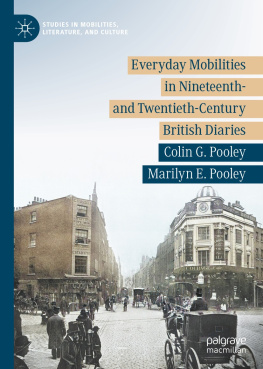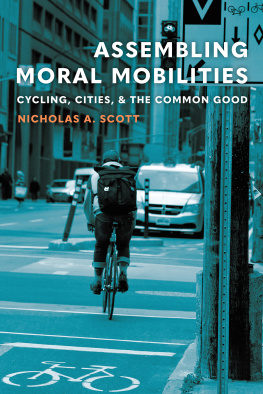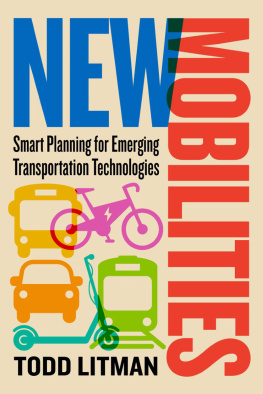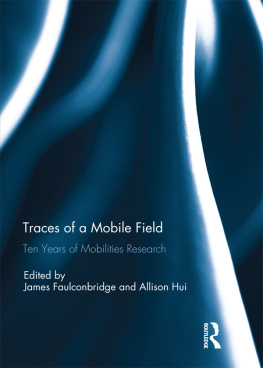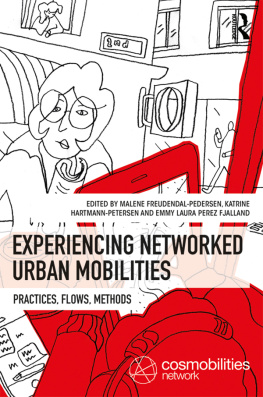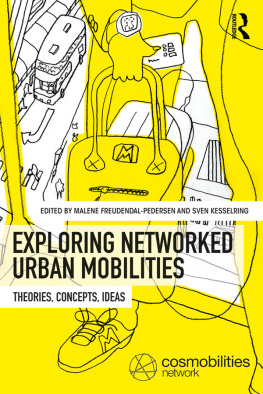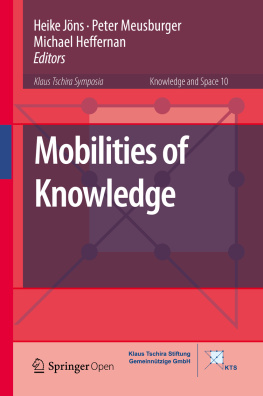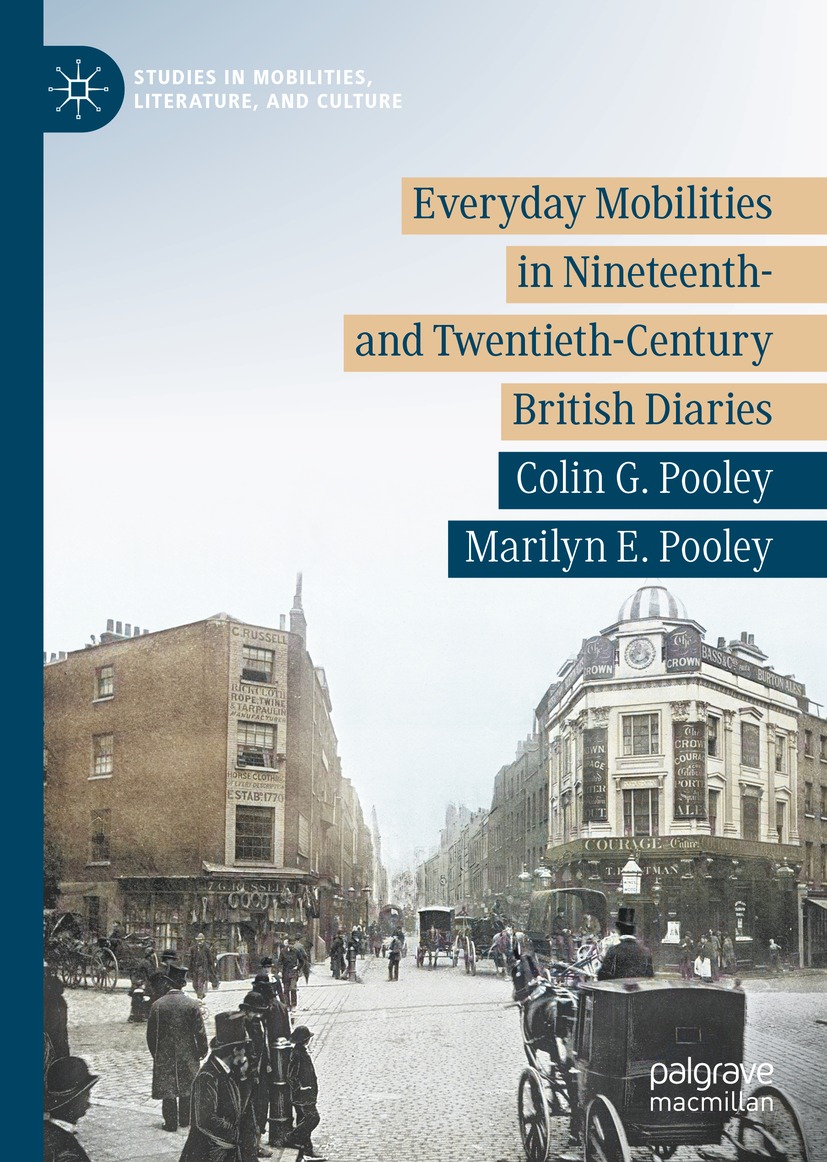Studies in Mobilities, Literature, and Culture
Series Editors
Marian Aguiar
Department of English, Carnegie Mellon University, Pittsburgh, PA, USA
Charlotte Mathieson
University of Surrey, Guildford, UK
Lynne Pearce
English Literature & Creative Writing, Lancaster University, Lancaster, UK
This series represents an exciting new publishing opportunity for scholars working at the intersection of literary, cultural, and mobilities research. The editors welcome proposals that engage with movement of all kinds ranging from the global and transnational to the local and the everyday. The series is particularly concerned with examining the material means and structures of movement, as well as the infrastructures that surround such movement, with a focus on transport, travel, postcolonialism, and/or embodiment. While we expect many titles from literary scholars who draw upon research originating in cultural geography and/or sociology in order to gain valuable new insights into literary and cultural texts, proposals are equally welcome from scholars working in the social sciences who make use of literary and cultural texts in their theorizing. The series invites monographs that engage with textual materials of all kinds i.e., film, photography, digital media, and the visual arts, as well as fiction, poetry, and other literary forms and projects engaging with non-western literatures and cultures are especially welcome.
Colin G. Pooley and Marilyn E. Pooley
Everyday Mobilities in Nineteenth- and Twentieth-Century British Diaries

The Palgrave Macmillan logo.
Colin G. Pooley
Lancaster Environment Centre, Lancaster University, Lancaster, UK
Marilyn E. Pooley
Lancaster Environment Centre, Lancaster University, Lancaster, UK
Studies in Mobilities, Literature, and Culture
ISBN 978-3-031-12683-3 e-ISBN 978-3-031-12684-0
https://doi.org/10.1007/978-3-031-12684-0
The Editor(s) (if applicable) and The Author(s), under exclusive license to Springer Nature Switzerland AG 2022
This work is subject to copyright. All rights are solely and exclusively licensed by the Publisher, whether the whole or part of the material is concerned, specifically the rights of translation, reprinting, reuse of illustrations, recitation, broadcasting, reproduction on microfilms or in any other physical way, and transmission or information storage and retrieval, electronic adaptation, computer software, or by similar or dissimilar methodology now known or hereafter developed.
The use of general descriptive names, registered names, trademarks, service marks, etc. in this publication does not imply, even in the absence of a specific statement, that such names are exempt from the relevant protective laws and regulations and therefore free for general use.
The publisher, the authors, and the editors are safe to assume that the advice and information in this book are believed to be true and accurate at the date of publication. Neither the publisher nor the authors or the editors give a warranty, expressed or implied, with respect to the material contained herein or for any errors or omissions that may have been made. The publisher remains neutral with regard to jurisdictional claims in published maps and institutional affiliations.
Cover credit: mikroman6 / Getty Images
This Palgrave Macmillan imprint is published by the registered company Springer Nature Switzerland AG
The registered company address is: Gewerbestrasse 11, 6330 Cham, Switzerland
Preface
Our motives for writing this book are simple. We have a long-standing interest in the study of migration and mobility in the past, but have been frustrated by the difficulty of gaining any significant information about the most common but mundane everyday mobilities that people undertook as they went about their daily lives. We have also both worked with personal diaries in previous research, and have come to recognise the immense value of diaries in revealing aspects of everyday life that otherwise remain concealed. This book brings together our studies of personal diaries, carried out over many years, and uses these data to explore some of the key characteristics and experiences of everyday travel in nineteenth- and twentieth-century Britain. Diaries are, of course, not perfect, and the limitations and difficulties of using personal diaries as a source to study mobility are discussed in full in this book. However, we do believe that the use of diaries, with all their faults, can provide a window on past mobilities that is not readily available from any other source. In particular, the use of personal diaries to study everyday mobility enables us to take key themes from contemporary mobilities theories and to apply them to past mobilities in ways that have not been done previously. We hope that the book not only enriches our historical understanding of travel and mobility in nineteenth- and twentieth-century Britain, but also that it demonstrates the ways in which many of the dimensions of contemporary mobility were equally relevant in the past.
Our intellectual journey to the production of this book has been shaped by many influences. Undergraduate and postgraduate study in Geography at the University of Liverpool exposed us to a wide range of research on migration and mobility both historical and contemporary. The vibrant interdisciplinary research environment at Lancaster University has further enriched our understanding of mobility, particularly through the Centre for Mobilities Research (CeMoRe), founded in 2003 by John Urry and Mimi Sheller. We have gained enormously from our interactions with the colleagues and events associated with CeMoRe over many years, all of which have helped us to develop and refine our ideas about past mobilities. Most recently, the role of Lynne Pearce, also at Lancaster, in developing interest in mobilities and the humanities has been of especial importance. We have also benefited immensely from our interactions with migration and mobility scholars from around the world at conferences organised through the American Social Sciences History Association and the European Social Science History Association. These have broadened our horizons and exposed us to many fresh ideas.
Diaries can be found in many places, and we have made use of a number of different archives to read the unpublished diaries on which this research is based. The large collection of diaries amassed through the Great Diary Project and curated by the Bishopsgate Institute Archive in London has been of especial importance with more than one-third of the diaries studied coming from this archive. Also important for us was the Edward Hall diary collection held by Wigan Archives in Leigh (Greater Manchester). Other diaries were located in various county and city archives, or have been given to us with permission to use through a combination of personal contacts and previous research projects. We are extremely grateful to all the archivists and other individuals who have assisted us in our journey to discover and read personal diaries. All these sources are fully acknowledged throughout the book. We also gratefully acknowledge the support and help provided by all those at Palgrave who have provided advice, answered our queries and seen the book through its various stages of production. Finally, none of this work could have been completed without the diarists themselves and, in many cases, their descendants and others, who have not only refrained from destroying this material but also have preserved it and have made it available for study. We have only met in person with two of the diarists we have studied, but we feel that we have become close friends with many of the others as their daily diaries revealed the twists and turns of their fascinating everyday lives.

